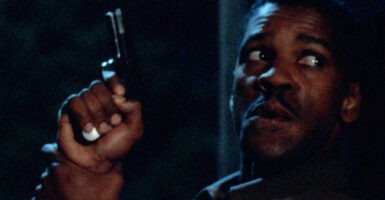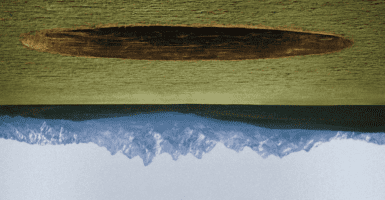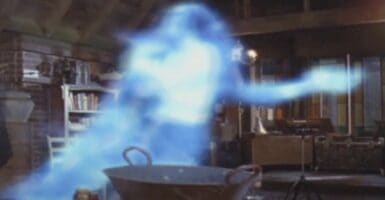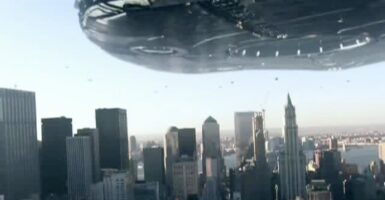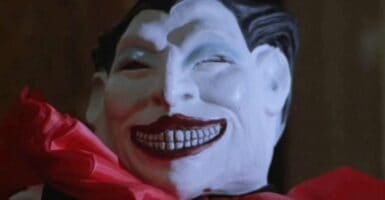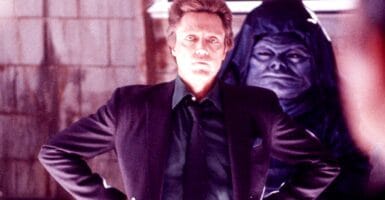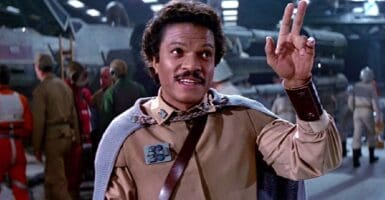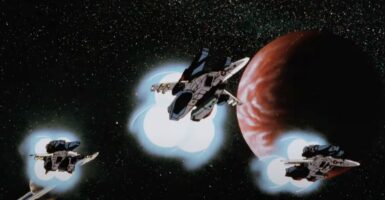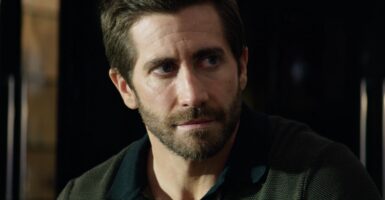Cloud Atlas Criticized For Lack Of Asian Actors And Use Of Yellowface Makeup
This article is more than 2 years old

Tomorrow morning, the movie Cloud Atlas will open in theaters everywhere. Audiences will be amazed by the visual style of the Wachowskis and the sincere, heartfelt moments and wonderful score of director/composer Tom Tykwer. But now the film has been hit by the sort of publicity you don’t want: Cloud Atlas is being decried for its “yellowfacing,” using makeup to make non-Asian actors appear Asian.
According to THR, Guy Aoki, the founding president of Media Action Network for Asian Americans, is accusing the filmmakers and production for not being racially conscious while making the film. The idea that all the actors in the film play characters of different genders, ethnicities, and backgrounds is consistent with the themes of Cloud Atlas. But what’s not consistent are the Asian actors and the portrayal of Asians by black and white actors. Aoki contends:
Cloud Atlas missed a great opportunity. The Korea story’s protagonist is an Asian man — an action hero who defies the odds and holds off armies of attackers. He’s the one who liberates [a clone played by actress] Doona Bae from her repressive life and encourages her to join the resistance against the government. It would have been a great, stereotype-busting role for an Asian American actor to play, as Asian American men aren’t allowed to be dynamic or heroic very often.
Actors Jim Sturgess, Hugo Weaving, and James D’Arcy play Koreans from the future in Cloud Atlas. Media Action Network for Asian Americans is upset by the lack of Asian contributions to the film, namely in casting Asian male actors, and the idea that making a black or white actor Asian only means making their eyes slant. Aoki continued:
It appears that to turn white and black actors into Asian characters (black actor Keith David was also Asian in the 2144 story), the make-up artists believed they only had to change their eyes, not their facial structure and complexion … [They] obviously took more care to make them look convincingly white. The message the movie sends is, it takes a lot of work to get Asians to look Caucasian, but you can easily turn Caucasians into Asians by just changing the shape of their eyes.
As an Asian American myself, I understand why black and white actors played the Asian roles. It’s consistent with the themes of the film, but I do take issue with the lack of Asian casting with Cloud Atlas. Aoki has a big point about the role of “blackface” in movies today, wherein it’s okay for “yellowface” to exist (The Last Airbender comes to mind), but the main reason why I was offended with the “yellowface” in Cloud Atlas was the black and white actors speaking in broken English with heavy, cartoon–ish Asian accents. There are ways to convey “Asian-ness” without reducing ethnicity to merely stereotypes. Also, Korean actor Doona Bae played an older Mexican woman in the film and her portrayal was stereotypical as well.
Maybe using these broad strokes are just shortcuts to understanding, but when you reduce a performance to a stereotype, it affirms the idea that this is what you are and you cannot break out of it. It’s easier to stereotype than to write something more dynamic and powerful.
